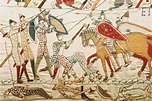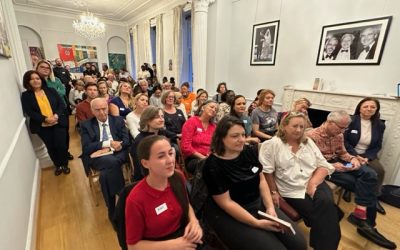
I am amazed at the new way of categorising people by their political belief that we now use in the UK, a remainer: someone who wanted to stay in the EU or a Brexiteer, someone who voted to leave. It is so divisive that I have heard someone being asked which way they voted respond, ‘you are not supposed to ask that are you?’
It made me think of other splits we have had in our island history around beliefs or political systems and how history took care of them. Here are a few of them, [put in a very simplified way.
In 1066, William the Conqueror from France invaded England. This was straightforward, the UK was invaded and the Normans beat the Anglo-Saxons. Over time, England absorbed lots of influence and vocabulary from the French and became used to the feudal hierarchy that the Normans came with and over generations, the difference disappeared.
During Tudor and Stuart times (we name our ages after the monarchy so we are now in the time of the Windsors), we fought each other like much of Europe over religion and primarily whether we were Catholics or Protestants so you could say that was about how we felt about the Bible, the afterlife etc.. People were burned to death for their beliefs.. Catholics and Protestants still have different hierarchies, lots of difference in how services are conducted but happily co-exist. We would find it extraordinary to be seen as completely different to one another now because we are Catholic or Protestant. The difference did not disappear but became a happy co-existence.
Moving forward, we had Jacobites and Hanoverians. This was about who legitimately ruled us, the House of Hanover or the Stuarts and had some bearing on religion too. The Jacobite rebellion failed and we ended up being a Protestant state.
Over time, we split more over political beliefs that religious ones, in the 1640s we divided into Roundheads and Cavaliers and this ended in civil war. Roundheads wanted Parliament to be sovereign, Cavaliers loyal to the King. Roundheads won. (Roundheads wore different helmets to the cavaliers hence the name) This war is seen as leading to the foundation of Parliament being sovereign.
Whigs and Tories, Tories were loyal to the monarchy of Charles 11 and Whigs were more liberal and open to reform including backing American Independence. We have managed these differences between conservative thinking and more liberal since with a Parliamentary democracy where differences in views can be debated and resolved.
So history will write about the Remainers and the Brexiteers and we have to believe that our institutions are strong enough to bring us back together.







